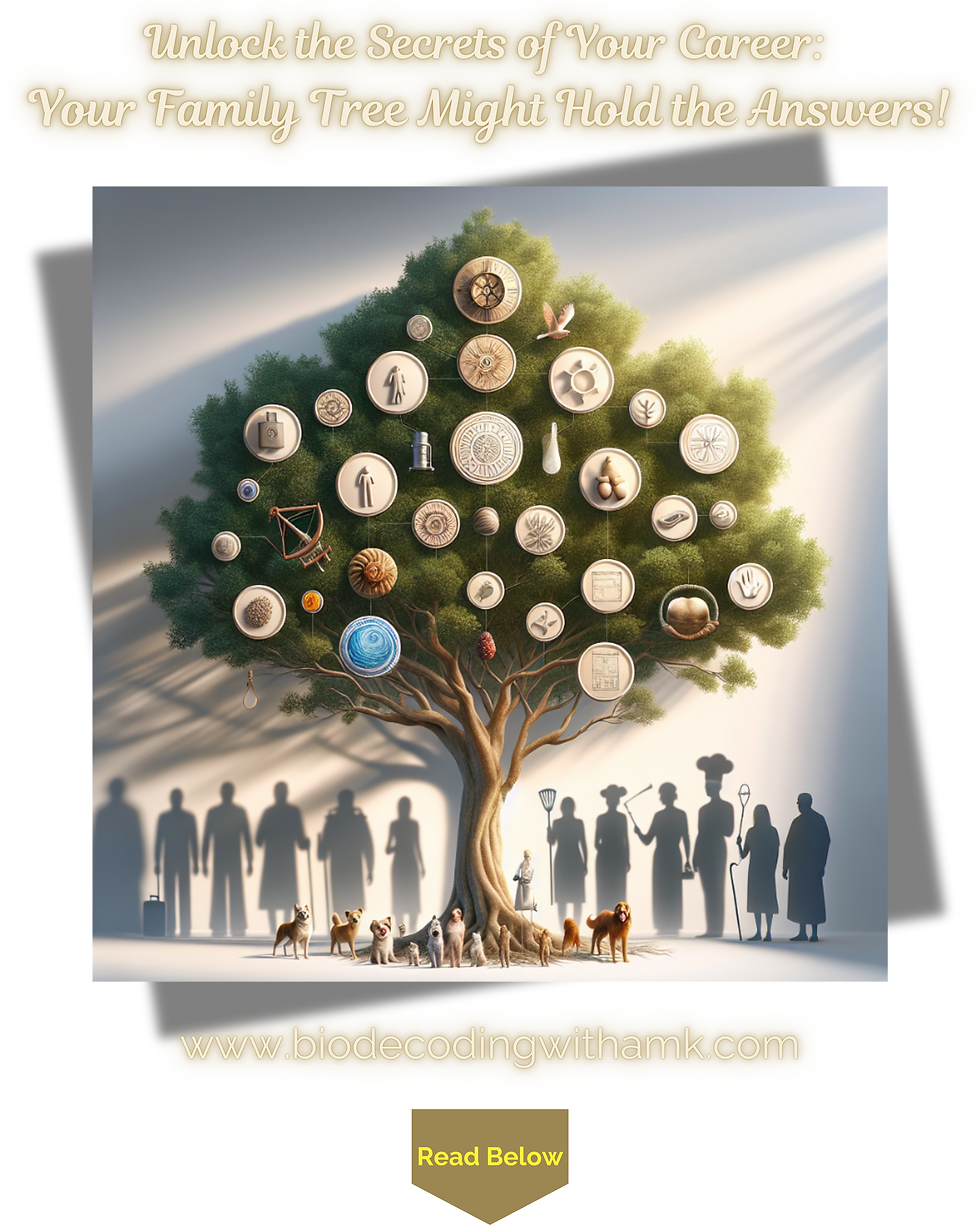
Agnieszka Kozak
9 Feb 2025
Have you ever wondered about the reasons behind your career choice? Or thought about what led you to your current job? Psychogenealogy, the study of family trees and their influence, might offer some intriguing insights. It suggests that hidden family stories can illuminate our professional paths. Bert Hellinger, the creator of family constellations, famously said, "You are the dream of all your ancestors." What does this mean? Simply put, the unresolved conflicts, hardships, and tragedies experienced by previous generations can significantly impact our professional lives. Sound unbelievable? Let's explore some examples.
In his book "Children Who Are Sick for Their Parents," Bruno Clavier describes a patient who, as a child, witnessed her younger brother drown in a lake while playing with her siblings. Years later, her mother had another son and gave him a similar name. Furthermore, the patient's uncle had died young from severe pneumonia, a condition involving respiratory failure and fluid in the lungs. Guess what the patient's younger brother became as an adult? A diving instructor! Two tragedies with similar themes deeply affected the family, creating a subconscious, transgenerational need for someone who could swim—and excel at it. This illustrates how a family's subconscious can drive future generations toward specific skills and professions.
Another powerful example, shared by my Tutor Michelle La Masa Dowson during training sessions, illustrates this concept further. A woman worked in a factory producing dog food, dedicated to ensuring its quality. The story behind this seemingly ordinary job was deeply rooted in a family event. When her mother was heavily pregnant with her, her father decided to help and cook a meal for the family. As he was cooking, she went into labour. An aunt was called to care for the other children while the mother went to the hospital. The aunt pleased that dinner was almost ready, prepared to serve the children. By chance, she pulled a bone from the pot, only to discover a dead dog on the floor upon returning to the kitchen. The dinner was immediately discarded. The family later learned that the father had attempted to poison the family. The dog's loyalty, in essence, saved them. This woman’s deep connection to this event and the dog’s role in protecting her family led her to work in the dog food factory, driven by an unconscious loyalty and a need to ensure that no dog would ever be poisoned by food produced under her watch. This powerful example shows how a traumatic family event can profoundly shape a person's career path.
Consider the deeper meaning behind your own work.
· If you work in healthcare, Ask yourself: Did anyone in your family not receive necessary medical care or suffer from serious illness? Did anyone die due to lack of money for medicine or treatment? The novel "The Physician" by Noah Gordon (also a film adaptation) provides a compelling example. The protagonist is orphaned when his mother dies of an incurable disease. This loss motivates him to become a barber-surgeon and embark on a perilous journey to study with the renowned physician Avicenna. This fictional example illustrates how a personal experience of loss and lack of medical care can inspire a career in healing.
· If you are a chef or restaurateur: Explore whether anyone in your family lacked food or nurturing. Did anyone suffer from hunger, both literally and figuratively (a hunger for love)? From a biological perspective, being fed, especially by a mother, satisfies our most primal physical and emotional needs. This connection between food, nurturing, and emotional well-being can be a powerful motivator for choosing a career in the culinary arts.
· If you are a builder or architect: Investigate whether anyone lacked a home, lost property or land, or was displaced. Did a family "home" (the family unit) break down? Did anyone lack a father due to death or abandonment? These experiences of loss and instability can subconsciously drive individuals towards careers that focus on creating and maintaining structures and safe spaces.
The family unconscious strives to prevent past tragedies. It "protects" the survival of descendants by programming them with inclinations towards specific skills, including professional ones.
Elizabeth Horowitz, in her book "Healing Your Family Tree," dedicates significant attention to employment and work in the context of family lineage. Sometimes, hidden family loyalties manifest in unexpected ways.
She describes a patient named Valérie who earned a living as a tarot card reader. Through family research, Valérie discovered a secret about her great-grandfather: he was a compulsive gambler who lost a substantial fortune at cards. This made him a "black sheep" in the family, and his name was rarely mentioned. However, the subconscious association of "cards = money" influenced his descendant's life. Perhaps Valérie was unconsciously trying to recoup the losses of her spendthrift ancestor. This example demonstrates how unresolved family issues, even those seemingly forgotten, can influence career choices across generations.
Are these just isolated cases from books? Absolutely not! It often happens that if we cannot fulfill a specific family need ourselves, we choose a partner with the "right qualifications." The family trees of people in committed relationships often remarkably complement each other. This suggests that we are drawn to partners who, on a subconscious level, can help us address unresolved family issues and fulfill transgenerational needs.


